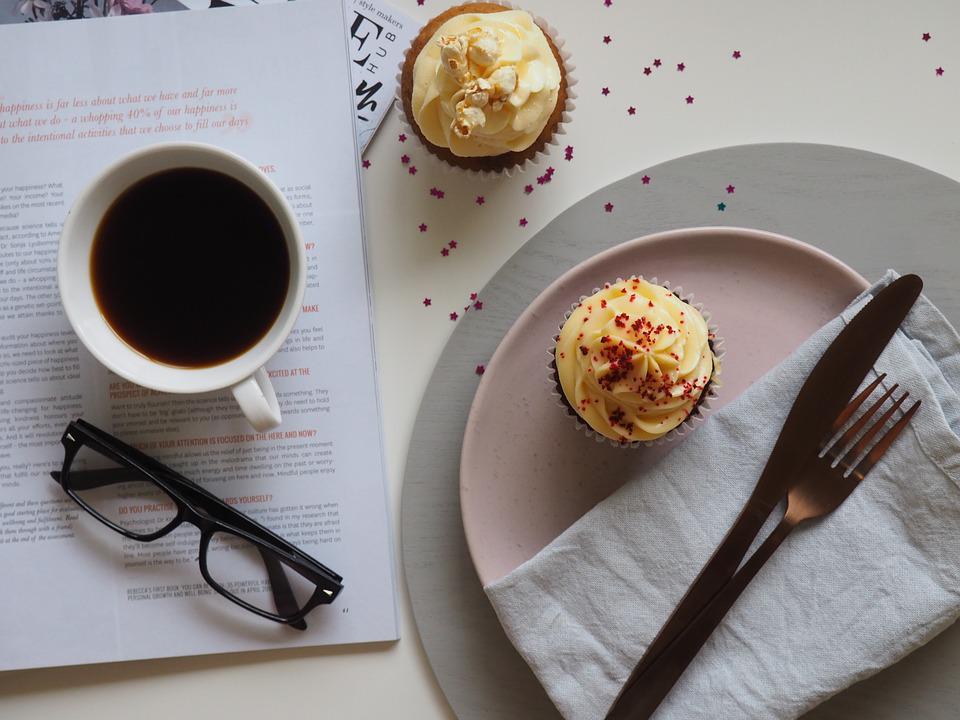Coffee and tea are often pitted against each other and have been since the two came into existence. These two drinks are like the cats and dogs of the culinary kingdom, as everyone is expected to either be a coffee person or a tea person. There is no sailing both the boats at once; you gotta pick a side!
That is why most people know which camp they belong to based on their preference without any reason or rhyme. However, not everyone can be unapologetically decisive. Some people need logic and rationale to choose an option when presented with two choices. So, naturally, they need to know the attributes of both coffee and tea to pick their preferred beverage.
Keeping that in mind, we decided to draw an in-depth comparison between the two eternal enemies in the hot beverages world. Here are all the facts you need to know to figure out if coffee is better for health than tea or the other way around so that you can pick one of the two.
Coffee
Coffee is one of the most popular caffeinated drinks in the world. Studies show that Americans consume an unhealthy amount of coffee each year. Last year the amount of coffee Americans consumed was 3.3 billion pounds.
Long story short, coffee is well-loved, and rightly so! After all, it jolts you up every morning to take on the day with energy. However, there are harmful effects of coffee as well that one cannot discount. Therefore, knowing all about the popular caffeinated beverage is important.
Coffee for Cancer
For the longest time, coffee was considered a contributor to causing cancer in people. But the World Health Organization‘s Agency for Research on Cancer recently removed coffee from the list of carcinogens. In fact, new studies suggest that it can actually deter colon cancer from resurfacing after treatment.
Moreover, coffee is believed to stave off uterine and liver cancer. While more research is needed on the topic, there is considerable evidence that suggests coffee can help keep certain cancers away.
Caffeine in Coffee
Although coffee and tea are both known for their high caffeine concentration, the former has more of the said stimulant than the latter.
According to Matthew Chow MD, an assistant professor of neurology at the University of California Davis School Of Medicine, a cup of coffee has two to three times more caffeine than the same sized cup of tea. Perhaps that is why people feel much more charged after downing a cup of coffee in the morning compared to tea.
That said, there are variables that you cannot disregard when it comes to the volume of caffeine in tea. While it considerably has less caffeine than coffee, the actual concentration of the said compound in tea depends on the variety, amount, and water temperature.
Simply put, you may be able to cultivate higher levels of caffeine in tea based on the kind and amount of tea you use. Nonetheless, the fact remains that coffee has a higher volume of caffeine than tea.
Coffee and Antioxidants
Like caffeine, antioxidants are present in both tea and coffee, but their concentration is higher in coffee. Some common antioxidants in coffee include chlorogenic, ferulic, caffeic, and n-coumaric acids.
Antioxidants are healthy chemical compounds that are known to fight diabetes and cancer. Moreover, they reduce cellular damage in the body that occurs from oxidative degradation. In simple words, when oxygen molecules react with substrates in the body, free radicals are formed, which in turn damage the cells and cause many other harmful reactions. Consuming antioxidants can help reduce the chances of oxidative degeneration in the body, which is why drinking coffee may be better than tea, as the former has more antioxidants.
Coffee and Diseases
Studies show that coffee can reduce the chances of Alzheimer’s, Parkinson’s, and heart disease in people. This means coffee lovers are less likely to develop the said conditions. But it must be noted that more research is needed on the topic to come to a definitive conclusion.
Furthermore, consuming too much coffee can have other harmful side effects such as nausea, diarrhea, increased heart rate, anxiety, etc. So, before you go on chugging pitchers of coffee nonstop, be sure to consider the possible repercussions of doing so.
Tea
Like coffee, tea is an immensely popular drink consumed by millions daily. Studies show that 159 million Americans drink tea every day. According to the stats from the year 2018, Americans had 3.8 billion gallons of tea in one year.
Safe to say, people, love them some tea. But like every other thing in life, tea has its fair share of adverse side effects, which is why we take a deeper look at the caffeinated beverage.
Tea for Cancer
In terms of curbing cancer, tea and coffee are not that far apart as both are known to fight certain types of cancer.
Drinking tea reduces the chances of cancer in people, including prostate cancer and skin and breast cancer.
Caffeine in Tea
Although coffee has more caffeine than tea, it doesn’t release sustained energy over a period of time as tea does.
Tea has a chemical L-theanine known to break down caffeine to give energy over a long period. This means when you drink tea, you will feel energized, and that feeling will last a while. However, that’s not the case with coffee, and it gives you a bolt of energy right away, making you perked up instantly.
Tea and Antioxidants
While coffee supposedly has more antioxidants than regular tea, it doesn’t come close to green tea when it comes to antioxidants.
If you are a green tea lover, you will be happy to know that it has the highest concentration of antioxidants of all.
Tea and Health
Tea is linked with a stronger immune system, faster weight loss, and lower chances of cardiovascular disease.
Final Verdict
After going through all the facts about tea and coffee, it’s safe to say that there is no clear winner as both have their share of health benefits and hazards. So, it’s possible that you may have to decide your winner based on flavor after all!

